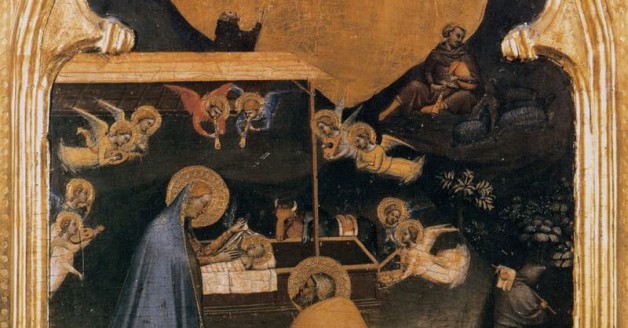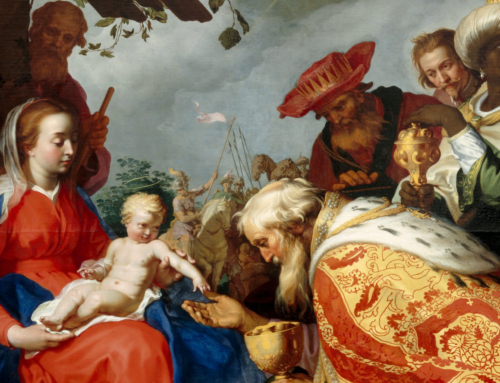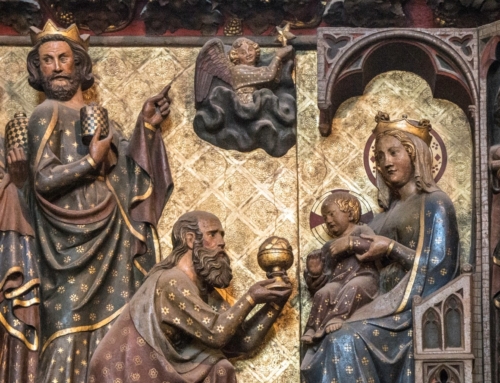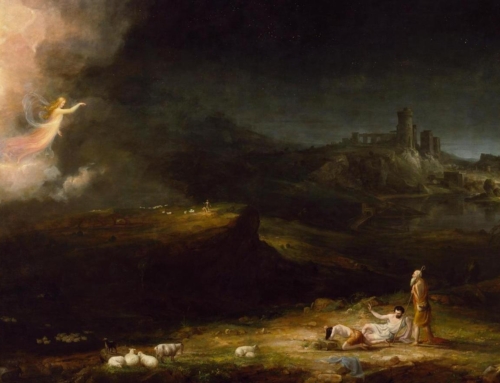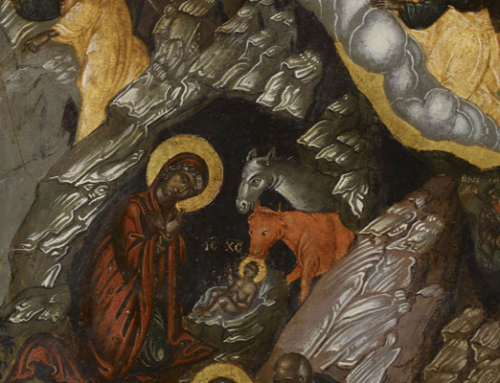Something strange is happening; there is a great silence on earth today, a great silence and stillness.
—from an ancient homily on Holy Saturday
Christmas Eve, like Holy Saturday, is a quiet day. Advent builds to a mighty crescendo, and then—a solemn pause. Exhausted with preparation, the Church comes to a standstill. She holds her breath, as it were, listening intently for that “tiny whispering sound,” the cry of a little baby (cf. 1 Kgs 19:12).
Yesterday, we sang the last of the Great O Antiphons. In these ancient chants, each assigned to one of the seven days leading up to Christmas Eve, the mournful pleas of unredeemed mankind become our own. “Sitting in darkness and the shadow of death,” we ask “the Dayspring of eternal light” to come and shine upon us. “Formed from the mire,” we ask “the King of nations” to come and join our humanity to his divinity. “Bound in the prison” of sin, we ask “the Key of David” to come and set us free. Sons of Adam by nature, we yearn to become sons of God by grace.
Each antiphon begins with a sort of plaintive groan, a “cry from the depths” of our original misery (cf. Ps 130:1). All the more profound for its simplicity and restraint, it consists (in musical terms) of a rising minor third, followed by a limping descent back to the tonic. Then, the thought of God’s goodness inspires an ardent, hopeful flight up to the dominant (apparuisti), whereupon an ascending fourth frames the central petition, veni: “come.” Finally, before the concluding motif comes the low point, which, in each of the antiphons, occurs as we consider ourselves (nos), in our wretchedness.
Here, for example, is the chant for December 22nd, O Adonai:
O Lord, and leader of the house of Israel, who appeared to Moses in the fire of the burning bush, and gave him the Law upon Sinai: come to redeem us with your outstretched arm!”
The monks who composed these chants contrived to make the first letter of each antiphon into a backwards acrostic: Ero cras. Only today, having sung all of the antiphons, can we recognize the acrostic and muse upon its meaning. A loose translation might be, “I will be there tomorrow.”
Yes, it is a quiet day. And the silence is like, yet also unlike, the silence of Holy Saturday. Both then and now, Christ is hidden, and we wait for him to come forth. But, whereas on Holy Saturday we wait for him to come forth from a place of death—the tomb—on Christmas Eve we await his arrival from a place of life—Mary’s womb. Again, on both days, we await a marvelous reversal, but in different ways. On Holy Saturday, Christ’s divinity seems unreal, while his humanity is all too apparent. There lies his corpse: how can we say he is God? By contrast, on Christmas Eve, the Word’s humanity seems impossible, while his divinity is undoubted. God, the creator of the sky and sea—how could he become a mere man?
How good for us that he could, and did. For, as the Fathers of the Church remind us, his birth is our birth. His birth in the flesh is our birth in the spirit. He put on our humanity that we might have a share in his divinity, and this for no other reason than that he loves us:
For what greater grace could God have made to dawn on us than to make his only Son become the son of man, so that a son of man might in his turn become son of God? Ask if this were merited; ask for its reason, for its justification, and see whether you will find any other answer but sheer grace (St. Augustine, Sermon 185).
✠
Image: Bernardo Daddi, Polyptych of San Pancrazio
For recordings of the other O Antiphons, in their Dominican form, click here.

